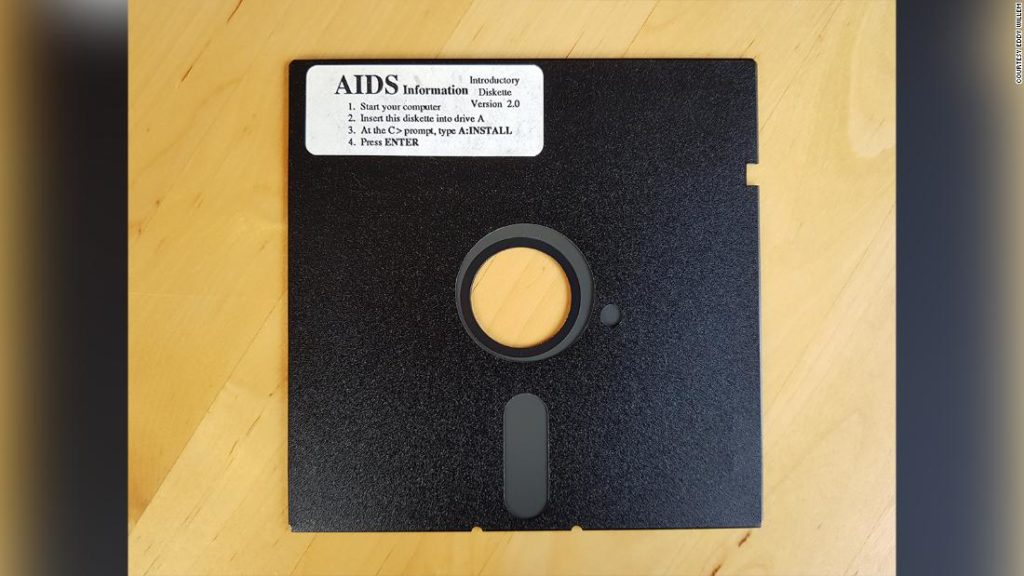The disc was one of 20,000 sent in the mail to attendees of the World Health Organization’s AIDS conference in Stockholm, and Willems’ boss had asked him to check what was on it.
A few days after inserting the disc, Willems’ computer locked and a message appeared demanding that he send $189 in an envelope to a PO Box in Panama. “I didn’t pay the ransom or lose any data because I figured out how to reverse the situation,” he told CNN Business.
He was one of the lucky ones: Some people lost their life’s work.
“I started to get calls from medical institutions and organizations asking how I got around it,” said Willems, who is now a cybersecurity expert at G Data, which developed the world’s first commercial antivirus solution in 1987. “The incident created a lot of damage back in those days. People lost a lot of work. It was not a marginal thing — it was a big thing, even then.”
The floppy discs were sent to addresses all over the world obtained from a mailing list. Law enforcement traced the effort to a PO box owned by a Harvard-taught evolutionary biologist named Joseph Popp, who was conducting AIDS research at the time.
“Even to this day, no one really knows why he did this,” said Willems, noting how costly and time intensive it would have been to mail that number of floppy discs to so many people. “He was very influenced by something. Perhaps someone else was involved — as a biologist, how did he have money to pay for all of those discs? Was he angry about the research? Nobody knows.”
“More than an actual criminal mastermind, he was what you would classify as a ‘lone actor’ as opposed to an organized crime syndicate or state sponsored actor,” said Michela Menting, a research director at market research firm ABI Research. “His motivations appeared to be quite personal. … He obviously had strong feelings about AIDS and AIDS research.”
The floppy disc, now a piece of security history and likely one of the few left in the world, hangs on Willems’ living room wall.
“A museum offered me $1,000 for it, but I’ve decided to keep it,” he said.
You may also like
-
Afghanistan: Civilian casualties hit record high amid US withdrawal, UN says
-
How Taiwan is trying to defend against a cyber ‘World War III’
-
Pandemic travel news this week: Quarantine escapes and airplane disguises
-
Why would anyone trust Brexit Britain again?
-
Black fungus: A second crisis is killing survivors of India’s worst Covid wave

